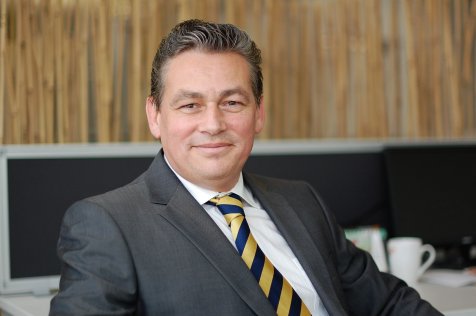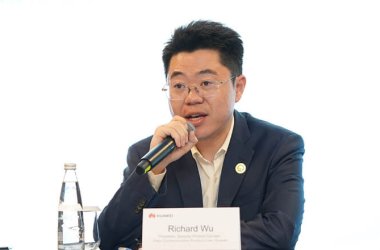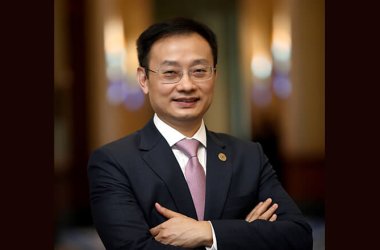CNME Editor Mark Forker secured an exclusive interview with Nadim Abdulrahim, Global Government Industry Expert, Huawei Enterprise Business Group, Middle East, to learn how city administrators are coping with new trends emerging from the COVID-19 pandemic, how Huawei leveraged its Converged Command and Control Solution to help cities fight back against the virus – and how cloud is key in fueling cities of the future.

According to Abdulrahim, many global cities were simply not equipped to deal with the COVID-19 pandemic because the systems they had in place were archaic and had not been designed to be collaborative. “One of things that we see as a big-ticket item borne out of the COIVD-19 crisis is digital transformation. There is a movement to transform governments to have their own digital platforms, specifically moving away from silo independent sub-systems per-department. This is a problem that is plaguing a lot of cities and government entities worldwide because each one has their own siloed system to operate – and when something major happens like the current global COVID-19 situation they are simply not prepared. In this type of scenario, you need to be able to share information, cooperate and be able to adapt very quickly. If you don’t have a platform that crosslinks multiple agencies, or government departments within a city or nation, then it becomes very difficult to get a situation under control in an effective and efficient way,” said Abdulrahim.
Huawei are known globally as being one of the world’s most innovative companies – and Abdulrahim highlighted how they dispensed their technological expertise to help many of its customers to overcome the obstacles and difficulties they faced during COVID-19. One of the beacons of their diverse portfolio of solutions for city administrators has been Huawei’s Converged Command and Control Solution. Underpinning this solution
is its ability to converge technologies to enhance collaboration, which historically and has been lacking within many governments in relation to its system for policing, ambulance, fire and emergency response services.
According to the Global Government Industry Expert at Huawei Middle East, there has been an absence of a unified platform with each unit having their own system.
“What we mean by collaboration is essentially linking all these entities together, so when confronted by a crisis like the ongoing COVID-19 pandemic they can rely on a system that allows them to effectively cooperate together. To enable this, you’ve got to converge all these systems together, whereas historically most government entities use a Tetra system for their mission critical communication. Tetra is a 2G-based proprietary technology, which provide audio communication and only allows you to send SMS’s. Whereas in our private life we either use 4G or 5G, and we can access video, audio, data capabilities and other sophisticated applications. This convergence of multimedia within the command and control industry is something we’re continuing to work on and improve – and all of it is linked on a mission-critical communications system. We provide a platform for this which is called ICP (Integrated Communication Platform) which intrinsically links everything together,” said Abdulrahim.
There is a global movement from government leaders to make their cities smarter and one of the fastest growing verticals has been the development of ‘smart cities’. Huawei is playing a key role in making cities smarter and Abdulrahim points out how Huawei’s cloud is helping them achieve their goals.
“In relation to smart cities I think you’ve got to look at it from a macro perspective and examine the bigger picture. Firstly, you’ve got a lot of devices providing information such as cameras, traffic enforcement & IoT sensors, drones and so on, which you want to send over an infrastructure or a pipe. This infrastructure will be feeding data to a cloud, whether it be a city or a government cloud, where you run the applications to enable processing and decision making. We look at it from the perspective of device, pipe, cloud and application. You want to capture the data from all these devices, transport it over an infrastructure to the cloud where you can then process it using specific applications,” said Abdulrahim.
He added that once you have it in the cloud you have an open platform in which you can essentially link anything, and stressed that when you’re looking at the bigger picture you also need to consider the impact of technologies such as 5G and AI will have on the development of a smart city.
“To take it one step further and improve government productivity, enhance their quality of services, and
provide a paperless services environment then the cloud has to be intelligent and for that particular part of the arena we provide Enterprise Intelligence. Enterprise Intelligence is AI, but is adapted and customised by the customer for their specific requirements and we provide this on the Huawei Cloud as a service,” said Abdulrahim.
The charismatic and dynamic executive concluded our brilliant conversation by reiterating the importance of data and how it is fueling the digital economy that we now live in.
“The more data you have at your disposal ultimately allows you to make better-informed decisions. We call it ABC. The A stands for Artificial Intelligence, the B stands for Big Data and the C is for cloud, because these three together are basically the digital transformation of the future combined with 5G as a transportation medium,” said Abdulrahim.





